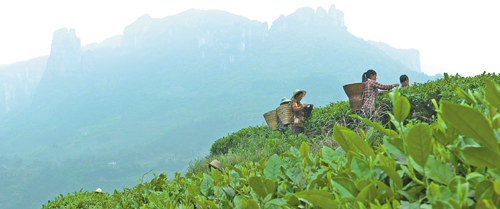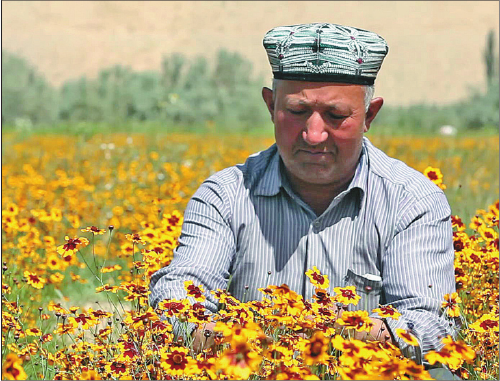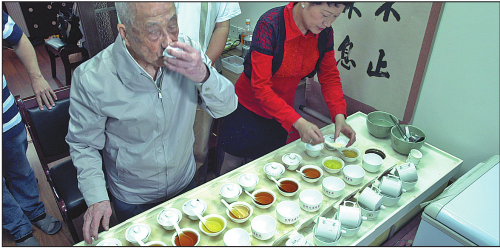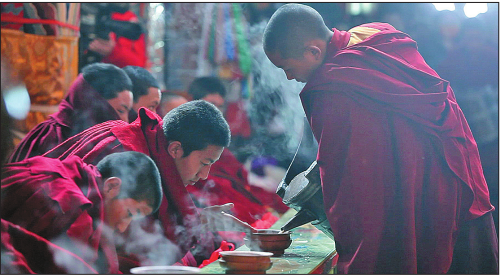
CHINA DAILY
The six-part documentary Tea, The Story of a Leaf features some of the country's best-known tea plantations like this one in Enshi, Hubei province.

CHINA DAILY
Snow chrysanthemum, which grows in the Kunlun Mountains in the Xinjiang Uygur autonomous region, is dried for a prized herbal tea.

CHINA DAILY
Zhang Tianfu, 104, is a tea expert who invented the country's first tea-rolling machine.

CHINA DAILY
Yak-butter tea serves as a source of energy for those on a spiritual quest in Tibet autonomous region.
Tea plays an important role in many cultures, from being part of religious ceremonies in Japan, to being a daily ritual for people in England. A new documentary explores how the drink affects the lives of millions of people. Sun Li reports in Xiamen, Fujian province.
Chinese people started to drink tea 2,000 years ago and The Classic of Tea, written by Lu Yu (AD 733-804) in the eighth century, elevated the humble beverage to an important part of Chinese culture. It is said tea was introduced to India in the Western Han Dynasty (206 BC-AD 24) and later spread around the world.
A new six-part documentary, Tea, The Story of a Leaf, explores how the universally loved and widely consumed beverage affects people's lives around the world. It premiered on CCTV-1 on Nov 18 and is now being aired on CCTV-9, the documentary channel.
Director Wang Chongxiao, a tea aficionado himself, says he was fed up with the stories told when the origin of a certain type of tea was introduced, which were always about legends involving gods or emperors.
"The deep mountains where the tea leaves were grown all seemed to be garnished with a mysterious veil. It sounds awesome but is surreal to me," Wang says.
Three years ago, Wang proposed the documentary to demystify tea and delve into the cultures surrounding the drink around the world.
We recommend:
